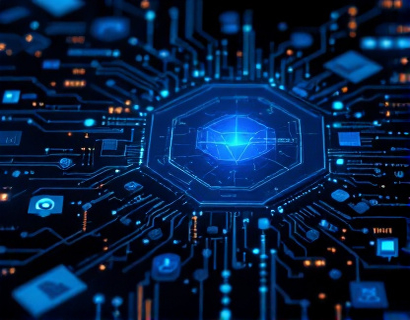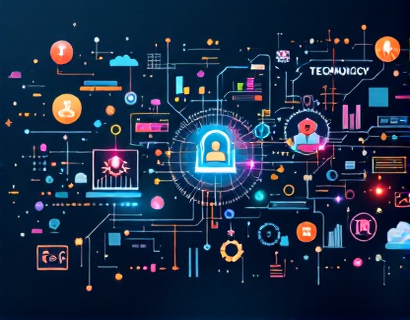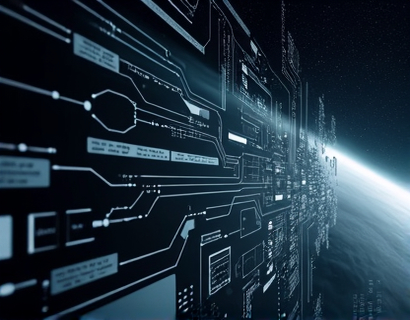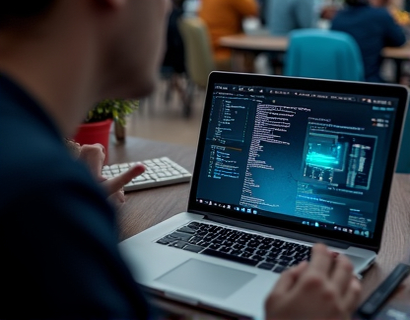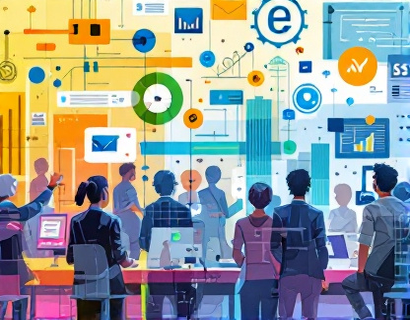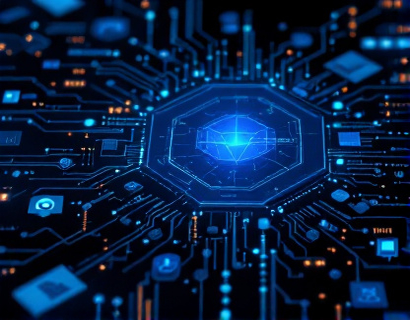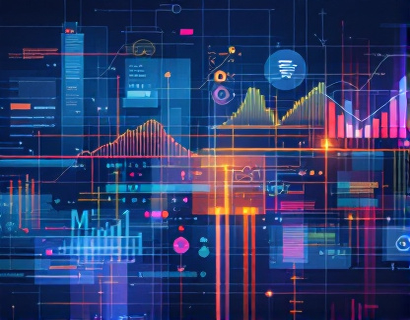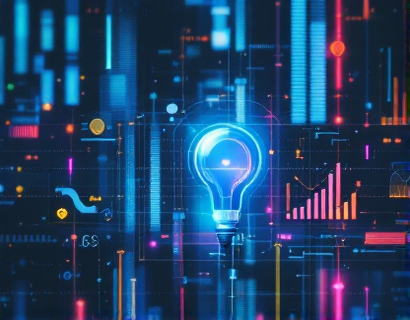Decentralized Productivity: Unleashing the Power of AI and Crypto for Next-Gen Business Efficiency
The intersection of artificial intelligence and cryptocurrency is giving rise to a new paradigm in business efficiency, one that promises to revolutionize how we collaborate, manage tasks, and leverage resources. This article delves into the emerging landscape of decentralized productivity tools, powered by AI and crypto, and explores how these technologies are redefining the future of work. For tech innovators and early adopters, understanding this convergence is crucial for staying ahead in a rapidly evolving digital economy.
The traditional centralized models of productivity and digital collaboration are being challenged by decentralized alternatives. These new systems leverage blockchain technology to create transparent, secure, and tamper-proof environments where users can interact without intermediaries. The integration of AI further enhances these platforms, providing intelligent automation, predictive analytics, and personalized user experiences. This synergy between decentralization and advanced AI is paving the way for next-generation business efficiency.
Decentralized Productivity Platforms
Decentralized productivity platforms are at the forefront of this technological revolution. These platforms utilize blockchain to ensure that all transactions and data exchanges are recorded in a transparent and immutable manner. This not only enhances security but also builds trust among users, as they can verify the integrity of the system independently. For instance, decentralized task management systems allow teams to assign, track, and complete tasks without relying on central authorities, reducing bottlenecks and increasing efficiency.
One of the key features of these platforms is smart contracts, self-executing contracts with the terms directly written into code. Smart contracts automate workflows, ensuring that tasks are completed as per agreed parameters, and payments are processed seamlessly. This automation reduces manual errors and speeds up processes, making business operations more streamlined and cost-effective. For example, a decentralized project management tool can automatically trigger payments to freelancers once milestones are achieved, without the need for manual oversight.
AI-Enhanced Decentralized Tools
The integration of AI into decentralized productivity tools amplifies their capabilities, offering advanced features that were previously unimaginable. AI algorithms can analyze vast amounts of data to provide insights, predict trends, and optimize workflows. In a decentralized context, these insights can be shared across the network, benefiting all users. For instance, an AI-driven decentralized analytics platform can process data from multiple sources, identify patterns, and offer actionable recommendations to improve business strategies.
Personalization is another area where AI shines in decentralized tools. By learning from user behavior and preferences, AI can tailor experiences to individual needs, enhancing productivity and user satisfaction. A decentralized AI assistant, for example, can adapt to each user's workflow, suggesting tasks, managing schedules, and even predicting potential issues before they arise. This level of customization is particularly valuable in dynamic work environments where flexibility and responsiveness are key.
Enhanced Security and Privacy
Security and privacy are paramount in any productivity solution, and decentralized platforms powered by AI and crypto address these concerns head-on. Blockchain's inherent security features, such as cryptographic hashing and consensus mechanisms, ensure that data is protected from unauthorized access and tampering. AI further enhances security by detecting and mitigating threats in real-time, using machine learning to identify anomalies and potential vulnerabilities.
Privacy is equally important, and decentralized systems offer robust solutions. Users maintain control over their data, deciding who can access it and under what conditions. Zero-knowledge proofs, a cryptographic technique, allow users to verify information without revealing sensitive details. This combination of decentralization and AI ensures that sensitive business data remains secure while still being accessible and usable.
Scalability and Interoperability
Scalability is a critical factor for the widespread adoption of decentralized productivity tools. Traditional centralized systems often struggle with scalability, leading to performance bottlenecks as user bases grow. Decentralized platforms, however, are designed to scale horizontally, adding more nodes to the network as needed. This distributed architecture ensures that the system can handle increasing loads without degradation in performance.
Interoperability is another key aspect, enabling different decentralized tools and platforms to work together seamlessly. Standardized protocols and APIs facilitate communication between various systems, creating a cohesive ecosystem. AI plays a role here too, by intelligently routing data and tasks across the network, optimizing resource utilization and improving overall efficiency. For example, a decentralized collaboration platform can integrate with multiple AI tools, allowing users to leverage the best features from each service in a unified interface.
Use Cases and Real-World Applications
The potential applications of decentralized productivity tools powered by AI and crypto are vast and varied. In the realm of enterprise, companies are adopting these tools to enhance internal collaboration, streamline supply chains, and manage complex projects. For instance, a global manufacturing firm can use a decentralized project management system to coordinate activities across multiple countries and time zones, ensuring real-time updates and transparent progress tracking.
In the creative industry, decentralized platforms are enabling new forms of collaboration and content creation. Artists and writers can use AI-driven tools to generate ideas, refine concepts, and manage rights and royalties in a transparent manner. This not only fosters innovation but also ensures fair compensation for creators. A decentralized content management system can automate the distribution of content across various platforms, optimize monetization strategies, and provide detailed analytics to track performance.
In the healthcare sector, decentralized tools are improving patient care and data management. AI-powered decentralized health records systems ensure that patient data is secure, accessible, and interoperable across different providers. This enhances the quality of care and enables more personalized treatment plans. Smart contracts can automate insurance claims and reimbursements, reducing administrative burdens and improving patient satisfaction.
Challenges and Considerations
While the potential benefits are significant, there are also challenges and considerations to keep in mind when adopting decentralized productivity tools. One major challenge is the learning curve associated with these new technologies. Users need to understand the underlying principles of blockchain and AI to fully leverage the tools' capabilities. Education and training programs can help bridge this gap, making these technologies more accessible to a broader audience.
Another consideration is the regulatory landscape. As decentralized systems operate across borders, they must navigate varying legal frameworks and compliance requirements. Ensuring that these platforms adhere to local laws and regulations is essential for widespread adoption. Collaboration between tech developers, legal experts, and policymakers is crucial to create a supportive environment for decentralized innovation.
Technical challenges, such as network latency and transaction speeds, also need to be addressed to ensure smooth user experiences. While blockchain technology has made significant advancements, there is still room for improvement in terms of scalability and performance. Continuous research and development are necessary to overcome these hurdles and make decentralized tools more practical and efficient.
Future Outlook
The future of decentralized productivity, driven by AI and crypto, looks promising. As more organizations recognize the advantages of these technologies, we can expect to see increased investment and innovation. The development of more user-friendly interfaces, enhanced AI algorithms, and improved blockchain scalability will further drive adoption. The integration of emerging technologies like quantum computing and edge computing will also open new possibilities, making decentralized systems even more powerful and versatile.
For tech innovators and early adopters, embracing this new paradigm is essential for staying competitive. By exploring and implementing decentralized productivity tools, businesses can gain a significant edge in terms of efficiency, security, and user trust. The journey towards a decentralized future is just beginning, and those who lead the way will shape the next generation of business efficiency.








